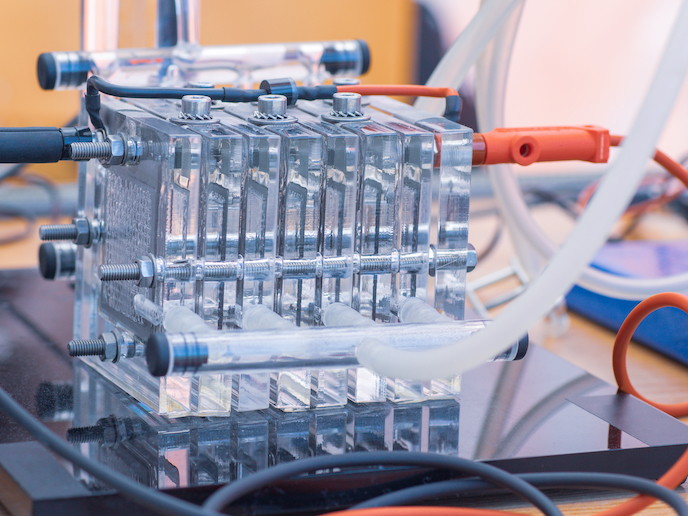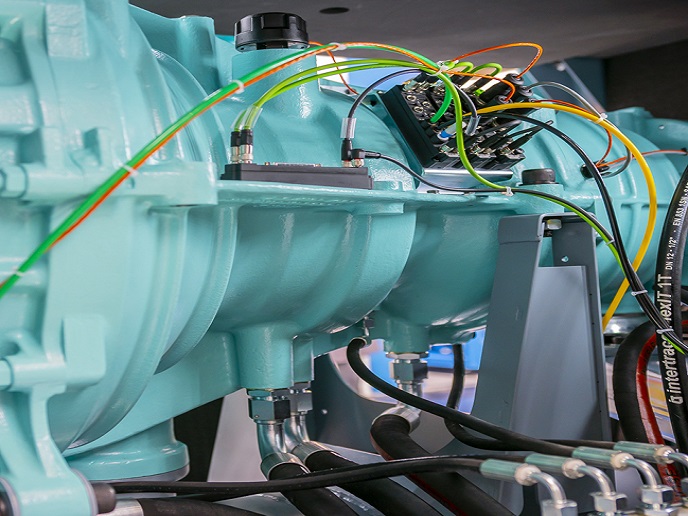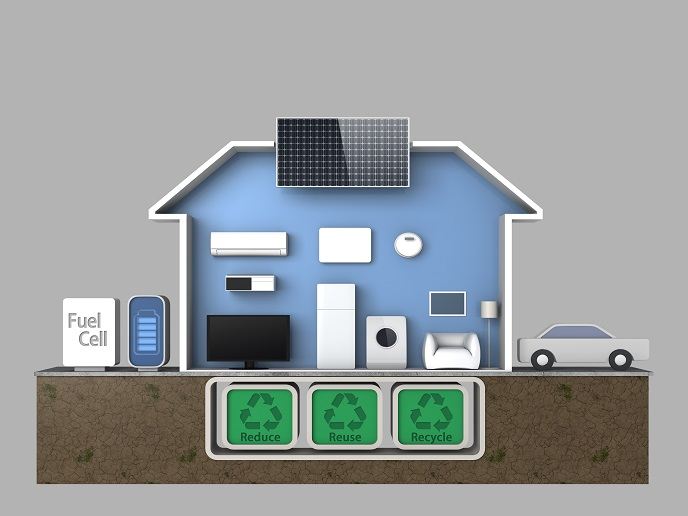Innovations in manufacturing make fuel cell technology cheaper and cleaner
Fuel cells(opens in new window) convert chemical energy (usually from hydrogen) and an oxidising agent (usually air) to generate electricity. Unlike most batteries, which contain their reactive elements, fuel cells rely on a continuous supply of fuel and oxygen to maintain their chemical reaction. Fuel cells have been touted as a highly-efficient option for domestic energy or to power vehicles. But one of the key challenges to achieving widespread adoption is the cost of manufacturing fuel cell stacks. The EU-supported Research and Innovation action project SOSLeM has helped create a new stack production plant at the company SOLIDpower(opens in new window), making the manufacturing process cheaper, cleaner and smarter. Cheaper because the design was simplified, with automated production. Cleaner, by using stack materials with less environmental impact, alongside optimised waste treatment.
Cheaper and cleaner production
The SOSLeM team overhauled the design of the cassettes which separate each respective fuel cell segment in the solid oxide fuel cells(opens in new window) (SOFCs) stack, using fewer components and in a fully automated environment. The stacks were then checked prior to installation at a SOSLeM-designed test bench that, using equipment more efficiently, speeded up its performance. This new test bench also provided more detailed feedback about the stack quality, improving the prediction of likely behaviour and pinpointing areas for improvement. “We had a challenge on our hands to improve the materials and manufacturing processes, as SOFCs operate at high temperature and materials tend to degrade faster as temperature increases,” says project coordinator, Mr Jan Pieter Ouweltjes. Before any changes were made to the manufacturing process, the team validated alterations at least four times in the lab under representative conditions.
Empowering consumers through Fuel Cell micro-Cogeneration
Under the PACE(opens in new window) project (co-funded by the EU), the innovations achieved in SOSLeM have been adopted to produce and distribute a beta version of SOLIDpower’s micro-combined heat and power (micro-CHP) product. PACE was established for the European deployment of so-called ‘Fuel Cell micro-Cogeneration’ for private homes. By producing heat and electricity near the point of consumption, this smart energy solution is highly efficient. The target is to deploy it to over 2 800 households across 10 countries by 2020. With heating responsible for half of Europe’s energy consumption, this technology could play a significant role in decarbonisation ambitions. PACE has in effect prepared the supply chain and created the marketplace for SOSLeM’s manufacturing innovations. “We achieved a real benchmark because there was nothing pre-existing to copy. Yet, we shortened a process that normally takes 3 to 5 years to no more than 12 months, finishing the plant, process engineering and automation at the same time, says SOLIDpower’s production manager Mr Bernhard Zwinz. “At the end of 2019 we will be able to produce up to 25 MW (16 600 stacks) a year in our new plant with fully automated assembly automation, creating over 80 jobs, with more generated at our suppliers of equipment and material.”







